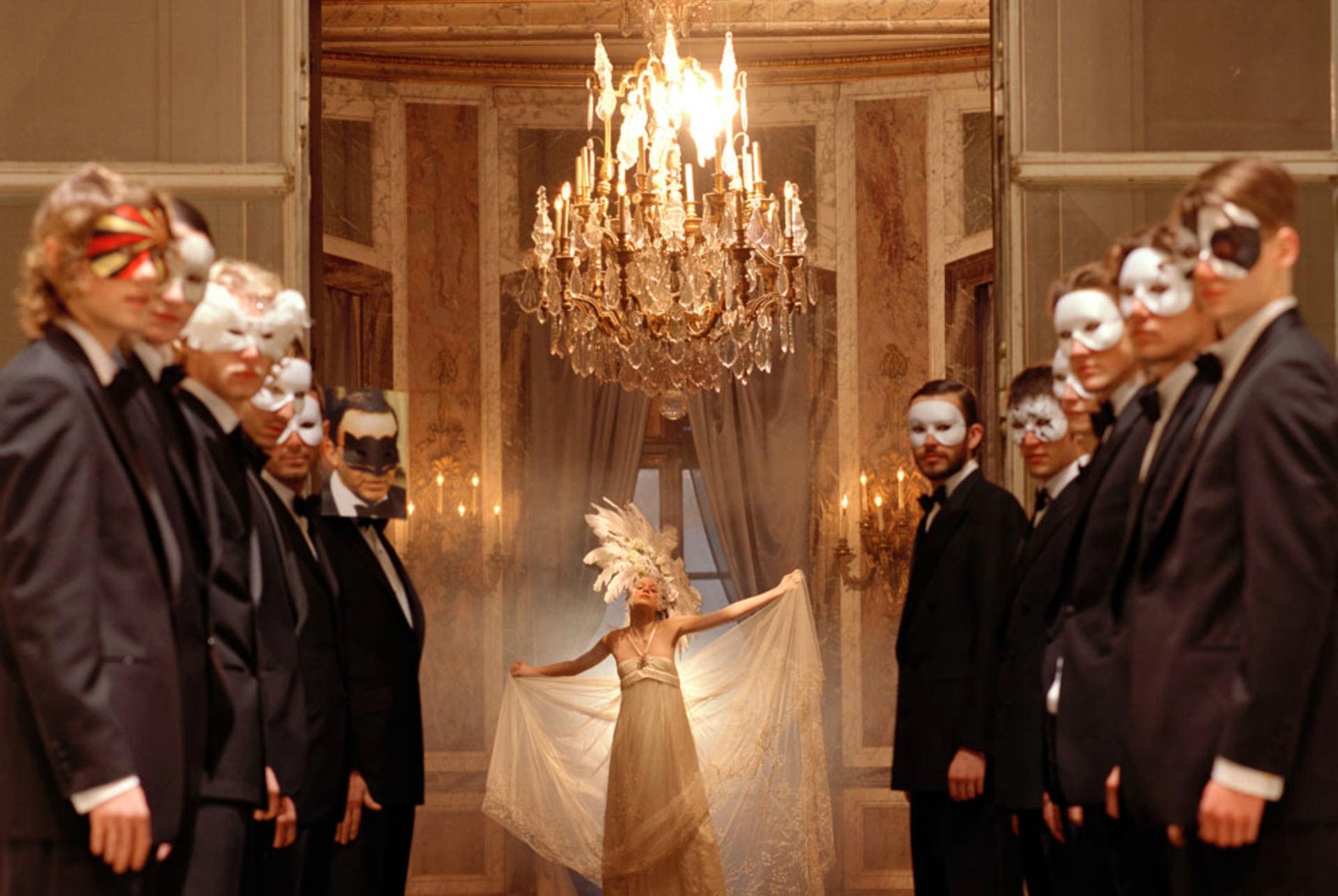Monastic chanting and cloyingly sweet incense enveloped me as I sat along the perimeter of the ceremony room of clandestine fraternal society Ordo Templi Orientis. I attempted to maintain a casual expression that conveyed “Sure, I participate in secret ritualistic dramas all the time” as I watched the robe-clad members of OTO’s Los Angeles chapter conduct quasi-Masonic rites of rebirth. That is, until they were no longer robe-clad.
In sheer Midwestern Catholic shock, I found myself staring open-mouthed at a nude woman propped up on the altar, apparently a key element of the ritual. No one else seemed alarmed. True panic set in when “communion” began. Watching members stand one by one, I realized I was supposed to stand alone, kneel before the nude “priestess” and recite the OTO creed. As my turn approached, my mind frantically raced: How could I escape?
Seconds before all eyes were fixed on me, I mumbled to the man next to me that he could take my spot. Nodding casually at no one in particular, I avoided all eye contact until the ceremony ended then backed out of the room and raced to my car.
What had compelled me to sneak a peek at the goings-on behind OTO’s (appropriately, as it turns out) closed doors? Like most Americans, I have a mild obsession with secret societies. I haven’t been tapped to join one, which makes me all the more curious: Do they still exist? And in today’s world, is anyone actually joining?
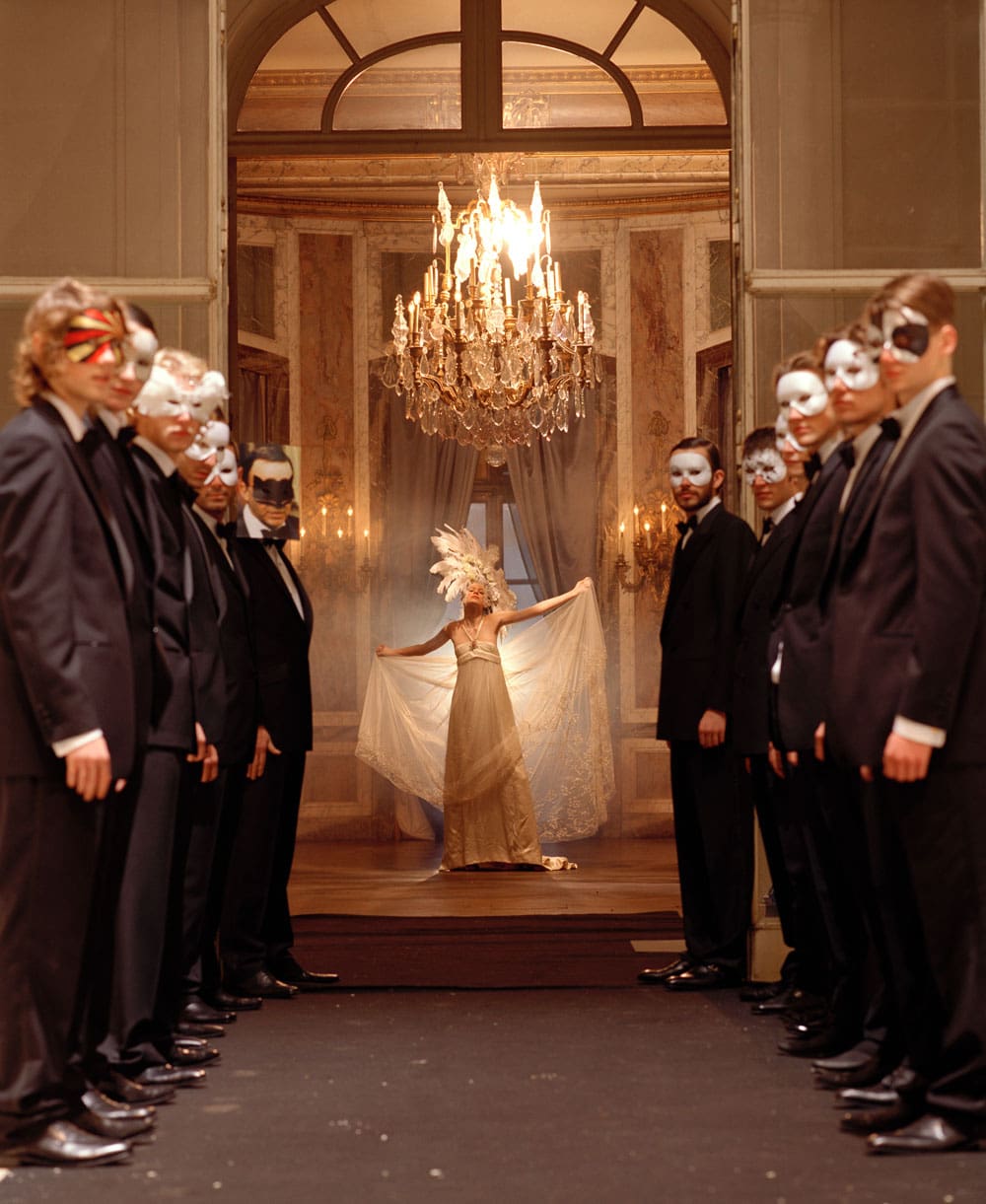
Photography provided by Jason Schmidt/Trunk Archive
The Illuminati deems itself “an elite organization of world leaders, business authorities, innovators, artists and other influential members of this planet.” It enlists a PR firm that caters to “planetary influencers” like religious movements, global corporations and heads of state. The vaguely Italianate-sounding rep listed on the agency’s otherwise bare-bones website, Helen Milano, wasn’t answering my emails, so I drove to the Beverly Hills address listed on the site. Instead of a foreboding, secretive-looking structure, I came upon an out-of-service gas station. Well played, Illuminati.
This particular lead was a dead end. But it prompted my first discovery in my quest to uncover the secrets of secret societies: Most of them have an online presence. And often, surprisingly, this isn’t the result of being forcibly exposed. Rather, it’s out of necessity.
The Illuminati is just one example of a no-longer-really-secret society that attracts online attention with a website and a PR firm (albeit a fake one). Turns out the true webmasters are the Freemasons, one of the oldest and most famous international fraternal organizations. Today in Minnesota and across America, the Masons operate like a public corporation that just happens to have some weird rituals. Vice writer Dylan Brethour says it’s an attempt to solve its “centuries-old PR problem,” which is made worse by the public perception that the Masons are just a strange group of old men who like to wear costumes.
“Secret societies have fallen out of fashion,” asserts John Lawrence Reynolds, author of Secret Societies: Inside the World’s Most Notorious Organizations. “For the Freemasons, their greatest concern is not the secrecy of the organization, but attracting new members. They need to keep the organizations going. Especially because of the Internet, secret societies like the Masons are doomed.”
Filmmaker Aaron Franz echoes that idea. “Freemasons are seen as a group of old men, which is superficial in one sense, but also accurate,” he notes. “It’s like the old guy trying to communicate to his grandson — how can they appeal to younger generations?”
In short, the Masons need to seem rational and relevant. But if they’re seen as too boring, they risk alienating prospective members seduced by the glamour of it all. “They’re a deist non-religion marked by a disjointed mixture of conservatism and high theater,” Vice summarizes. “Surely some of the attraction for any potential member is that weirdness. After all, what’s the point of joining a secret society that wants to be open, transparent and normal?”
Once upon a time, this image problem would have been unthinkable. Since the 15th century, the Freemasons have been the most influential international society with the longest membership list. The group was founded by the most talented British stonemasons, who banded together to charge premium prices for their superior techniques. “Even after their techniques became well known,” says Reynolds, “the internal secrecy of the society remained.”
The American Masons are older than the country itself. The first branch was founded in Boston in 1733, and it expanded rapidly from there. Nearly every signee of the Declaration of Independence was a Mason, including George Washington, Benjamin Franklin and John Hancock. In the 19th and 20th centuries, the organization became a political machine, connecting networks of powerful people to pull strings and influence decisions.
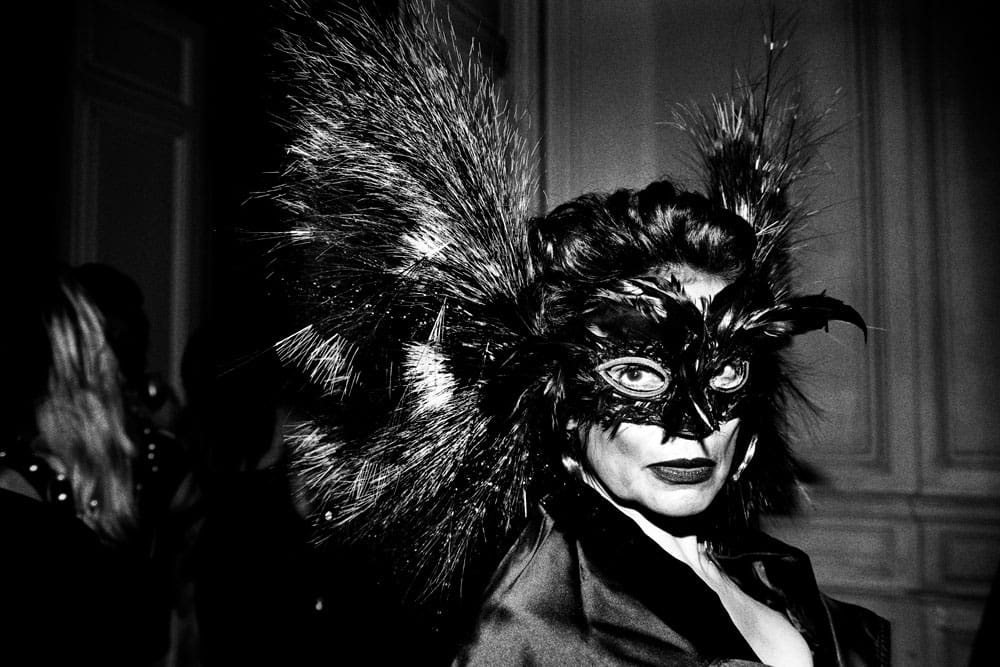
Photography provided by David Burton/Trunk Archive
The allure of power and political gain was so intense, in fact, that fraternal organizations became controversial for their ability to entice men to obsessive loyalty. “There is a strange and powerful attraction for some men in the mysticism of the ritual,” writer W.S. Harwood posited in 1897. “There is a peculiar fascination in the unreality of initiation, an allurement about fine teamwork, a charm of deep potency in the unrestricted, out-of-the-world atmosphere [that] surrounds the scenes where men are knit together by the closest ties, bound by the most solemn obligations to maintain secrecy as to the events [that] transpire within their walls.” At that time, clandestine clubs were so enchanting that an estimated 20% of American men had joined one.
But in modern times, “the Masons’ reputation for mysticism has made them a beacon for conspiracy theorists, ranging from purported links with 9/11 to the Illuminati and New World Order,” Vice notes. To combat this, the organization has actively attempted to dissolve any association with underhandedness by opening its doors and spilling its secrets.
Today, Mason wannabes still need to be nominated by an existing member, but any man can petition to join. And the membership application clearly disavows any association with political rigging: “If you are motivated to join because you have been misled into thinking that becoming a Freemason will advance your station in life by giving you an advantage in business or politics, you should look elsewhere; you will be sorely disappointed.”
Minnesota’s own Masonic roster is an impressive lineup of past and present power players, including James J. Hill, Hubert Humphrey, all three Mayo Clinic founders, and one-time Carlson Companies chair Curtis Carlson. But these days, Masons are less likely to be railroad tycoons and more likely to be airline pilots (like Minneapolis Lodge Master Peter Fakkeldij), consulting firm associates (like Alexander Oftelie) and entrepreneurial CEOs (like Bram Vollebregt). Another difference between then and now? These names are public, their ranks are searchable, and membership is no longer (and can no longer be) a mystery.
“I was working in the library and got up to grab a coffee,” 2014 Yale alum Jane Doe tells me. “When I came back to my table, there was a sealed envelope with my name on it sitting on the book I had been reading.” It told her to appear at a secluded spot on campus that evening.
It was Tap Night, when collegiate secret societies approach recruits for initiation. Still today, Yale has dozens of covert clubs. Some, like the famed Skull and Bones, are more high-profile than others, and interests range from drinking and debauchery to philanthropy and human rights. Recruits are tapped at the end of their junior year to join the following year.
Cosmopolitan Deputy Editor and 2008 Yale alum Jen Ortiz knew right away that she wanted to be tapped when the opportunity arose: “There’s the exclusivity factor, which makes it appealing whether you want to admit it or not,” she explains. “It’s exciting to get an opportunity to bond with people you’ve never even met in your final year.”
Current Yale sophomore Emma Knight, who hopes to join a secret society when the time comes, seconds that sentiment: “I truly believe that all of my amazing friends at Yale have the potential to become extremely successful in the future. In terms of connections and networking, all of my friendships could become relationships with future world leaders. Joining a secret society allows you to enjoy more of these connections.”
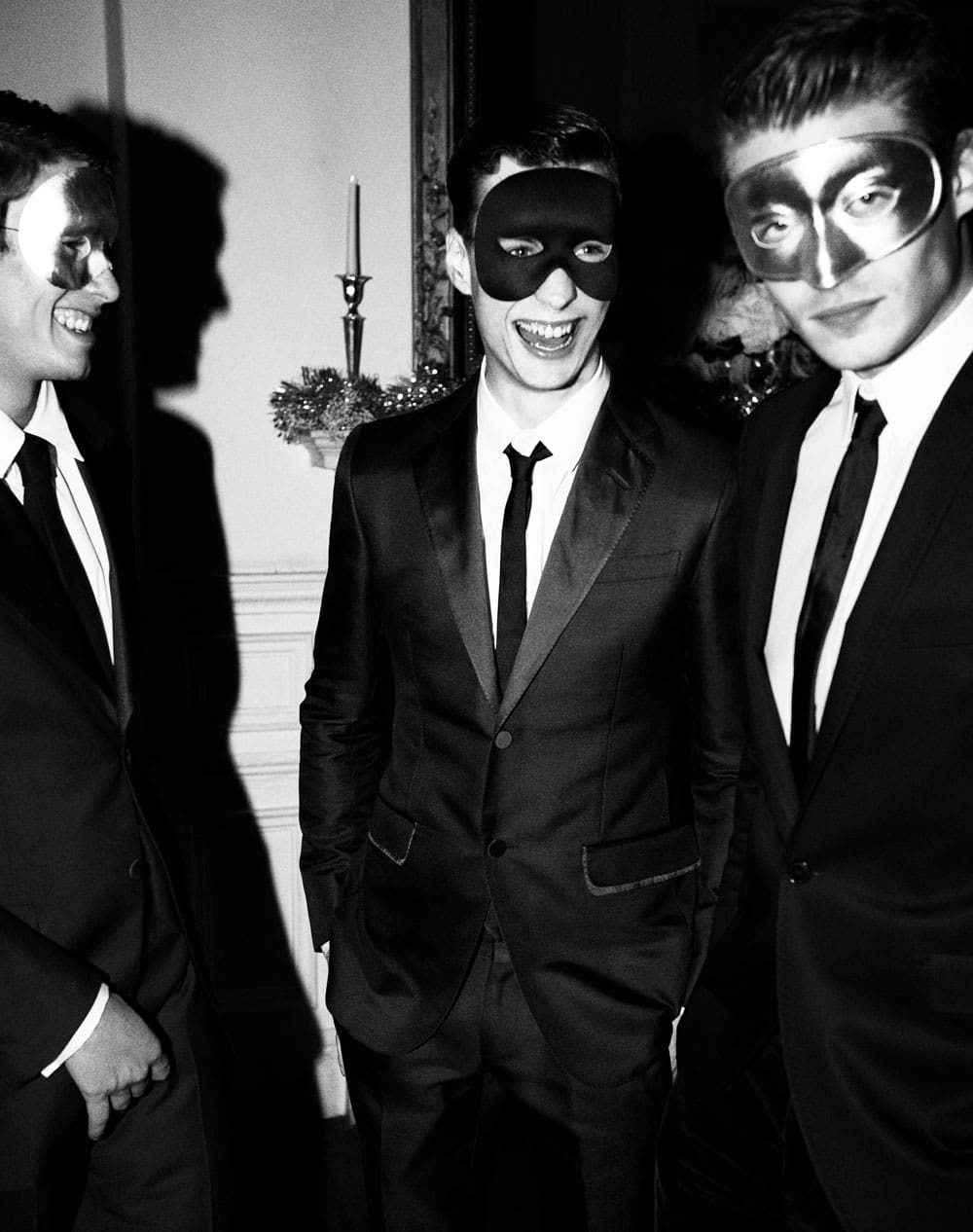
Photography provided by David Burton/Trunk Archive
But I was skeptical: Are today’s college kids really capable of keeping a secret? Can they join a clandestine organization without Instagramming it? Jane Doe waited until after she had left Yale to spill her secrets, and everything she told me proved my assumptions wrong.
“When I showed up, I was met by two students I had never seen before, and without explaining anything, they led me to a room deep within one of Yale’s undergraduate colleges behind several locked doors,” she explains. “There were about 20 people inside. It started with a cocktail hour, then a formal debate began. Nobody gave me instructions, but it was clear I was to jump in as I felt inclined. I didn’t know it at the time, but this was my audition for the society. I didn’t hear anything from them again until the end of that year, when I received another letter in an identical fashion, this time inviting me to inauguration.”
She was initiated into the Linonian Society, one of Yale’s oldest and most illustrious secret societies. When she belonged in 2014, confidentiality was maintained by offline communication and careful codes of conduct. Linonians knew of meeting times and locales only through word of mouth. They never traveled as a group, appearing on campus only in smaller pairings. “It would have been unthinkable to reveal any secrets shared in our meetings to the detriment of one of the members,” she adds.
Ortiz’s introduction to Red Mask was slightly different but equally wholesome: “I had to memorize the lyrics to a Celine Dion song,” she explains. “That night, per instructions, I blindfolded myself when I got to the meeting spot. The current members were all in masks and robes, and led us around campus, where we had to complete silly tasks like doing a cartwheel while singing a Celine Dion song.”
Collegiate secret societies aren’t exclusive to the Ivy League, though, and some are even common knowledge on campus. A member of the University of Cincinnati’s open-secret society, Sigma Sigma, found out about the group in 2012 when he watched a procession of robe-clad men holding flaming torches and massive iron hammers parade down the street chanting.
“I was at a coffee shop with my friends, and the parade approached me,” he explains. “They crowded around me to form a circle until I was alone in the center, pushing my friends away to tell me I was being tapped.” Unlike the low-tech Linonian Society, Sigma Sigma was already adapting to the realities of being a secret society in modern times. “Because we wore cloaks and held actual torches, people routinely called the police if they saw us,” he says. “We began calling the police ahead of time to alert them about our plans so they wouldn’t freak out.”
While some societies are surviving the modern world, others are struggling to evolve. First, there’s the diversity problem. University administrations are no longer tolerating the rampant exclusion inherent in traditionally all-male, white, upper-class clubs. In 2017, Harvard cracked down on single-gender social groups (i.e. almost any elite secret society) by announcing that members wouldn’t be able to hold leadership positions on campus, serve as captains of athletic teams, or receive Harvard’s endorsement for postgraduate scholarships like the Rhodes and Marshall. The policy was a clear warning.
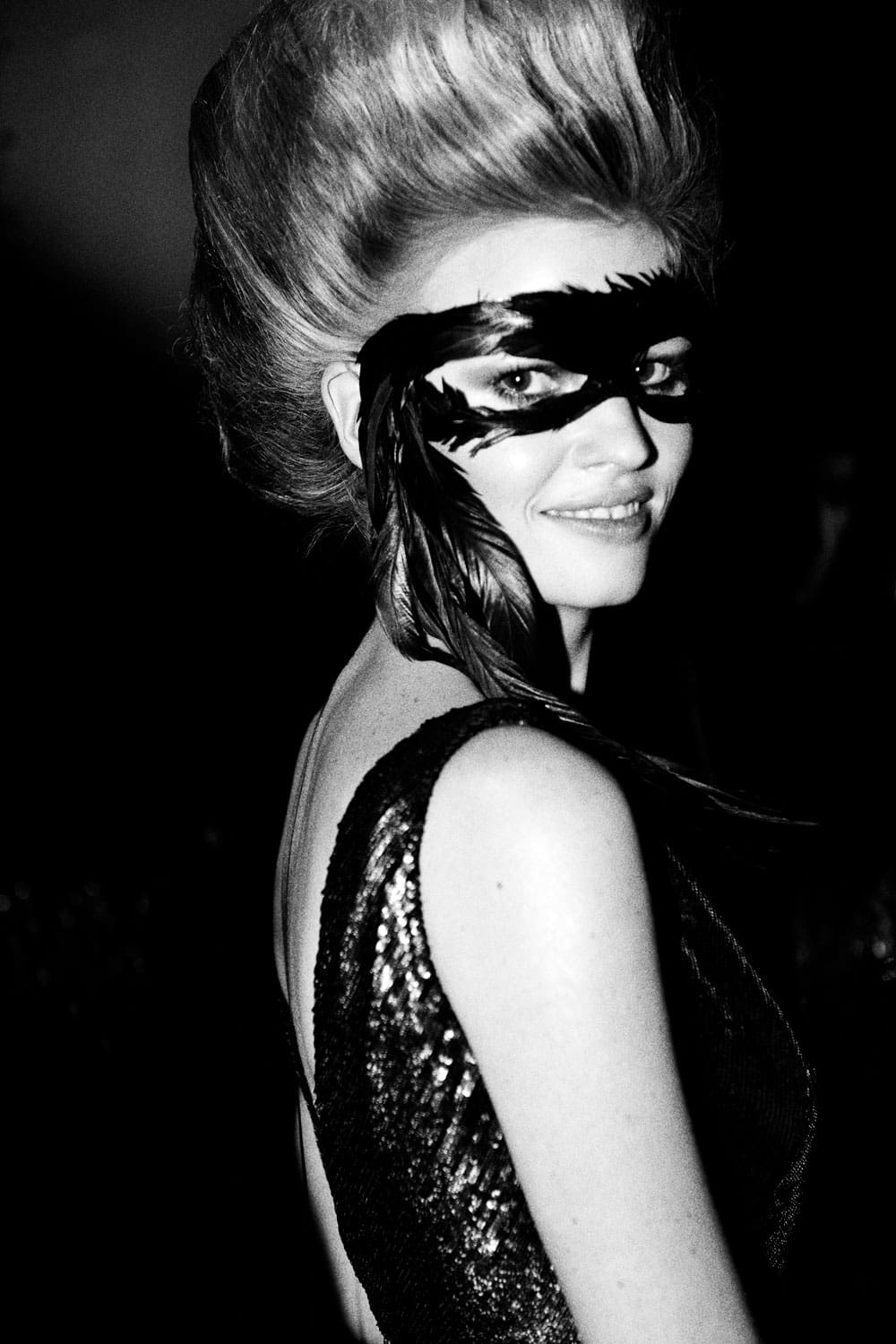
Photography provided by David Burton/Trunk Archive
“Since the university couldn’t singlehandedly eliminate private, unrecognized, off-campus organizations, administrators put in place the strongest disincentives to joining that they could come up with,” explains Chronicle of Higher Education Senior Reporter Sarah Brown. The obvious issue for the Harvard administration? The exclusionary nature of single-gender clubs with the discretion to select members usually of the same nationality and/or socioeconomic status. But for some secret societies, exclusion has been the least of their problems.
“Women aren’t allowed to formal dinners, but at informal gatherings, we would make them get down on all fours like a horse, whinny, and bring out hunting horns and whips,” a member of Oxford University’s Bullingdon Club told the Mirror back in 2014. The once-elite English society counted nearly every upper-crust male among its ranks at one time, including British Prime Ministers David Cameron and Boris Johnson. Members wore uniforms that could only be purchased from a single tailor for $5,000 a pop and hosted raucous meetings described as “fucking carnage.” At one such affair held at an Indian eatery, “there was curry dripping down the walls. There’s literally a man swinging from the chandelier, and people throwing up papadoms and trying to smash them like you would clay pigeon shooting.” It cost £10,000 to buy the restauranteur’s silence.
These days, the organization is essentially extinct, thanks in equal parts to its bad behavior and its “overexposure,” as British journalist (and Bullingdon member) Harry Mount wrote in his 2017 “obituary” for the club in the Spectator. It seems that the secret society long considered “one of the most exclusive clubs in the country, with invitations to join seen as an indicator of social prestige,” as the Telegraph puts it, has died a very public death.
I didn’t have to dig deep to uncover countless online conspiracy theories speculating that clandestine organizations like the Illuminati, Bilderberg Group and Bohemian Club secretly control everything from world politics to space exploration. And some of these theories are even true.
Take the Bohemian Club. Its all-male membership meets at a restricted Northern California campground dubbed the Bohemian Grove for an annual two-week affair that kicks off with what Vanity Fair writer Alex Shoumatoff calls “a macabre, hokey ceremony with Druidic, Masonic, Ku Klux Klan and Aryan forest-worship overtones.” Historically, the gathering has brought together the top tier of U.S. decision makers; in 1968, at least one director from 40 of America’s 50 largest industrial corporations attended. The club made headlines in 2009 when Shoumatoff snuck into the camp and reported on the unusual number of men relieving themselves on historic redwood trees: “With gin fizzes being poured at 7 a.m., so many enlarged prostates and such majestic natural urinals, who’s surprised?”
But public urination is pretty tame compared to the secret masterminding of public policies that conspiracy theorists believe takes place during meetings. And they aren’t entirely wrong: In 1942, it was in the Bohemian Grove clubhouse that J. Robert Oppenheimer, the father of the atomic bomb, plotted the Manhattan Project. One woman claims that her father attended the meeting at which Richard Nixon and Ronald Reagan made a deal that the former would run for president in 1972 and the latter in 1980. This same insider asserts that a lakeside talk about nuclear rearming resulted in policy change years later, concluding that “policy is made behind closed doors, without the input of the public. This is most undemocratic.”
Not everyone is convinced that club meetings are where the world order is decided, however. “A secret is a source of power,” author Reynolds tells me. “If I know a secret about you, I have power over you, just as you would over me. So, to those outside the group, the secret society becomes threatening. North America in particular [gets] very easily wrapped up in conspiracy theories about secret societies. Although these beliefs have no basis in fact, they still have enormous power to sway people’s actions. These conspiracy theories become so powerful that they override any kind of logic.”
The real mystery, as it turns out, lies in groups even more covert than secret societies. “There probably are secret, powerful forces governing global events and pulling the strings of the world as we know it,” Reynolds acknowledges. “But if so, we have absolutely no idea who they are.”
So that’s how I found myself at an OTO meeting. And honestly, aside from the nudity, the whole experience was fairly mundane. Sure, there were some odd characters (the other first-timer was a magician who cried inexplicably), but on the whole, the crowd was young, attractive and successful. Over Champagne toasts, I chatted with a thirty-something software engineer who just wanted to make some cool IRL (that’s in-real-life) friends.
But those IRL friends aren’t a major motivator for many millennials, explains filmmaker Franz. “Secret societies are the old ways of social networking,” he notes. We now have Instagram and Snapchat to digitally mimic the in-person interactions of yesteryear. The exclusivity of a clandestine club is easily replicated by a private online group.
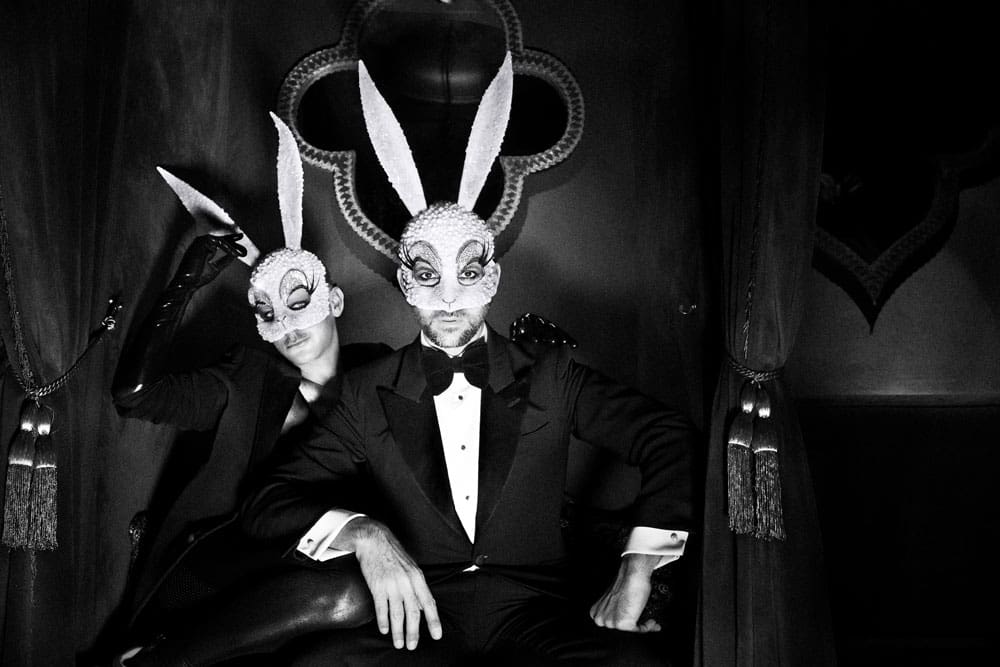
Photography provided by David Burton/Trunk Archive
Other millennials are opting out for purely practical reasons. Jen Ortiz, who opted in while at Yale, says she wouldn’t join a secret society as an adult. “Life is busy enough,” she explains, “so another social commitment wouldn’t be at the top of my list.”
So are secret societies dead? Or will they ever die? I don’t think the idea of them ever will. We’re nostalgic for a long-gone time when shared experiences — not group texts — knitted us together. Plus we’d like to believe that the world isn’t as ordinary as it sometimes seems. What if you were chosen to join a secret world of exciting mystique with the most powerful people on earth? What if you knew the truth about what makes the world turn, how decisions are made and who makes them?
It’s a seductive notion to be sure, but the more I learned about secret societies, the more I realized they’re collapsing because they are exactly what modern society aims to destroy. Too rowdy, too elitist, too expensive, too discriminatory — the list of damning problems goes on and on. In short, they divide us instead of bring us together. Every time a society “taps” a select group to learn its secrets, it automatically designates everyone else lesser than, unworthy, undesirable. Maybe it’s the millennial in me, but I would much rather be ordinary than wait for someone to tell me I’m good enough. If secret societies are truly dying, maybe it’s about damn time.
A Secret Society Primer
Bilderberg Group
• The Basics: Upward of 150 world leaders who meet for informal discussion about “major issues facing the world”
• Membership Requirements: Lead a country, then be invited
• Purported Members: Prince Charles, Bill Clinton, Henry Kissinger, Margaret Thatcher
• Notable Ritual: Your personal security team must eat lunch in a separate room (this should tell you everything you need to know about Bilderberg)
Bohemian Club
• The Basics: Private San Francisco–based gentleman’s club
• Membership Requirements: Receive multiple invitations from members, pay $25,000 initiation fee and annual dues
• Purported Members: George H.W. Bush, Bing Crosby, Richard Nixon, Ronald Reagan
• Notable Ritual: Ceremony at the foot of a 40-foot owl disguised as a rock, in front of which a human effigy is burned
Freemasons
• The Basics: Storied trade organization turned O.G. men’s club
• Membership Requirements: Be a man, meet standards of character and intention, receive approval from entire lodge
• Purported Members: Winston Churchill, Arthur Conan Doyle, Rudyard Kipling
• Notable Ritual: Mock death in which an initiate is blindfolded with a rope around his neck and a knife brandished at his chest
Illuminati
• The Basics: Refers to both the historic Bavarian organization founded to oppose state power and the fictitious (or is it?) group masterminding world events
• Membership Requirements: Good luck with that, nobody knows if the covert club exists*
• Purported Members: Queen Elizabeth II, David Rockefeller, Jacob Rothschild
• Notable Ritual: *See above
Latitude
• The Basics: Underground San Francisco organization oriented around game play
• Membership Requirements: Be invited by someone who thinks you are “of like heart and mind,” have loads of cash
• Purported Members: Unknown
• Notable Ritual: Completion of a praxis themed around retelling a fable in a unique way
Ordo Templi Orientis
• The Basics: Masonic offshoot, but with women and “sex magick”
• Membership Requirements: Be 18 or older, have two members vouch for you, be up for simulating sex in public
• Purported Members: Peaches Geldof, L. Ron Hubbard, Jay-Z, Kanye West
• Notable Ritual: Simulation of all types of sexual encounters during meetings
Curious where you belong? Find out which secret society is right for you.
How to Make Your Secret Society Internet Famous
Tweet Exclusive Secrets.
Before British socialite Peaches Geldof died of a heroin overdose in 2014, she not only tweeted to her hundreds of thousands of followers about Ordo Templi Orientis’s rituals and teachings but also tattooed its super-secret initials on her arm. After her death, news outlets everywhere published Geldof’s posts.
Hit Reply All.
In 2013, Esquire reported that the entirety of the Georgetown Second Stewards Society’s emails were available online. Up until that point, the club had been thought defunct. It was alive and well, as it turns out, and among its members was the leading candidate for student government president (who promptly lost the election).
Publish Your Finances.
Nonprofits are legally required to register with the government and publish their assets. That means that the names of every executive board member of say, the Bohemian Club, their assets (some $20 million in 2017) and the like are published in a handy document readily available online.
Glorify Your Gaffs.
In 2004, a New York Masonic social club was completing a ritual in which an initiate is shot with an unloaded gun. Unfortunately, an elderly member accidentally grabbed a gun with bullets instead of blanks and proceeded to kill the unsuspecting newbie — a mishap that made national headlines.
Speak Your Opinions.
In 2016, the graduate board president of Harvard’s Porcellian Club made a public statement that allowing women in secret societies could increase the potential for “sexual misconduct.” His comments made waves not just on campus but nationally, and he was forced to resign.

